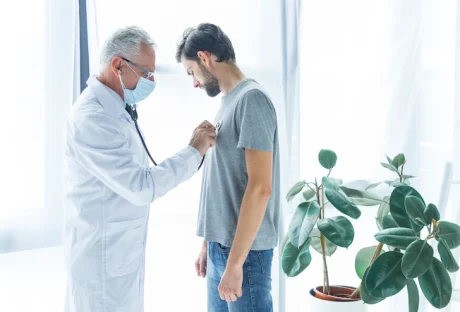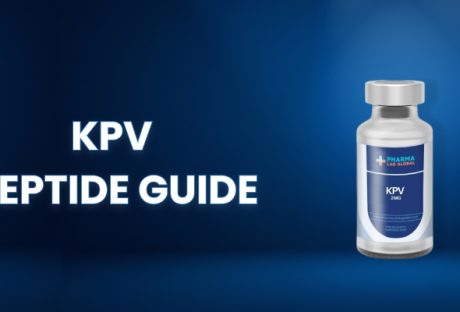Category: Health & Fitness
ContentRally is a leading source of reliable news and trending topics on Health Fitness. Get hard-to-find insights and advice on Health Fitness from industry-specific leaders.

Four Easy Ways To Take Back Control Of Your Health This Summer
We can all be guilty of letting things slip when it comes to our personal health. Everyone has been in the position where they have been too swamped with work to deal with that ache or pain right now. Anyone who is a parent will know that the priority is always going to be the health of their children and that we will always wait for a quiet moment before dealing with our own. More often than not, that quiet moment never comes. However, the fact is that we all need to be doing a lot more when it comes to listening to what our bodies are trying to tell us. The summer is the perfect time to do this when the weather is better and most of us are looking forward to a bit of time off to wind down and recuperate. There are things that we can do to help our bodies and our minds look after us, and there are steps that you can take to identify issues before they become a real problem. Let’s have a look at some of the best things that we should all be doing. 1. Book A Check-Up With Your Doctor Most of us only go to see our doctor when there is something obviously wrong. It can take a lot to push us to actually make that appointment and admit that we need to talk to a professional. If you want to take control of your health, then one of the best first steps is to get in touch with your doctor for a check-up. You should be seeing your personal doctor about once a year. You can ask about any issues that may have been keeping you up at night, and you get some advice about changes that you can make to your lifestyle that will help. The sooner you do this, the sooner you can start feeling more in control. 2. Look At An MRI Scan Speaking of health issues that keep us up at night, there is no illness that worries us more than cancer. Most of us are familiar with the big warning signs, but if you really want to take control of your health, then you should think about getting proactive. If you spot any warning signs early, then you have a much better chance of successful treatment and getting rid of it. One of the best ways that you can do this is by going for a full-body MRI. This scan will create 3D images of your body’s structure and your organs, and it is low risk. If you want to learn more about a fully-body MRI works and how it can help you, visit Ezra. They offer an annual scan that will look at up to 13 organs to give you the best chance of beating cancer. 3. Start Getting Organized Many of us struggle with taking control of our health because we have not factored it into our daily schedule. When you are over-stressed and over-tired, of course, you are going to react to problems as they arise and take the easiest route out of any potential issue. This is how you end up not getting as much exercise as you know you should and eating a diet that you know could be much better. If this all sounds a bit too familiar, then one of the best things that you can do is to get organized. Start by sitting down with your daily schedule and look at where you can dedicate an hour, or even half an hour, a day to a bit of exercise. It is recommended that we should all be getting at least 150 minutes of moderate to intensive exercise a week, and if you break it down that is achievable. When it comes to your diet, planning is the key. Write a meal plan at the start of the week and make sure that you have a shopping list before you head to the store. Think about what recipes you can make that will give you the vitamins and minerals you need, and which you enjoy cooking! 4. Take Your Mental Health Seriously Finally, we should talk about mental health. We have seen so many stories about mental health in the last couple of years, but it bears repeating: if you don’t look after your mental health, then everything else will suffer. This is one of the best ways to ensure that you are staying on top of your other health responsibilities, as well as your personal and work ones. Make sure that you are giving yourself time in the day that is just for you. Reach out and talk to people in your life if you are feeling isolated. You should also consider talking to a professional. Needing help with your mental health is nothing to be ashamed of. Read Also: Is It Healthier To Have Dentures?7 Health Tips For Medical StudentsTemporary Health Insurance and Who It SuitsWhen Will Social Media Addiction Be Considered a Mental Health Condition?
READ MOREDetails
How to Help Someone Overcome Addiction in Illinois
It’s never easy watching someone you care about go through something like addiction. Many times, people in this situation watch the person they care about to deteriorate and become a different person. If you think your loved one is addicted but you’re not sure, be on the lookout for these warning signs. Their behavior has changed. You notice them becoming more withdrawn, angry, combative, or abusive towards you. You notice them becoming obsessive They’re hiding things from you. Maybe you found needles or empty vodka bottles under their bed or in their bathroom They’ve come home bruised or beaten up but won’t tell you what happened They aren’t sleep They slur their words They’re losing weight or their outward appearance has changed for the worse. If your loved one shows any of these signs, there’s a good chance they might be addicted. If you’re watching someone you love spiral into addiction, there are ways you can help to overcome addiction. Here’s how. 6 Ways To Someone You Know Overcome Addiction In Illinois 1. Call your local rehab center Places like Lincoln Recovery or your local hospital are a great resource for you to tap into. They’ll be able to help you determine the best treatment options for your loved one without making you or them feel ashamed. They’ll be able to give you advice and tools. They can also help you plan something called an intervention. An intervention is when family and friends of the addict’s life come together to make their loved one understand that they need help. Interventions must be planned so they don’t cause more problems. While it’s going to be awkward and uncomfortable, an intervention that’s done right can gently push your loved one on the path to recovery. 2. Establish trust This is a huge thing. Often trust is broken between addicts and the people they love the most, and while it may be difficult to achieve, getting them to trust you is so important. Otherwise and intervention won’t work properly. To start building trust with an addict, you have to learn not to nag, yell, exaggerate, lecture, or engage in any substances they’re addicted to. Asking them to stop drinking when they see you drinking, even if it’s only a small glass of wine at night, can make them defensive. Trust will also help prevent stress. If they trust you more, they’ll be less stressed and feel more comfortable opening up to you about their addiction. Most addicts know they have a problem deep down, they just don’t want to admit it out loud and make it real. Don’t do anything that will keep them from opening up to you about it. Watch their body language to help you determine if your attempts at trust-building are working. If you notice them growing stiff or becoming agitated pull back and try again another time. 3. Never blame Even if the person who’s addicted made you lose money, your reputation, etc. do not try to blame them for it. While they need to take responsibility for their behavior, blaming them for things while they’re addicted will get you nowhere. It will only make them more resistant to change, defensive, and closed off. Speak in the first person, only about how you feel or what you think. Whenever you talk to them about their addiction, use “I” statements. “You” statements can come across as blameful and can do the opposite of what you hope to achieve in the conversation. Avoid insults and negativity at all costs because that is the blameful language that will make them defensive. For more information on using “I” statements, click here. 4. Always practice empathy You see how dangerous it is to blame the addict in any way, either for their addiction or their behavior. Leading with empathy, whether your staging an intervention or not, can help the addict feel more comfortable and open up. Tell them that you understand they’re hurting, and while you don’t know what they’re going through firsthand, you’re there to help in any way you can. You want to be a part of the solution. Offer assistance in any way you can. By doing this, you might find that the person has been waiting for someone to talk to them about it but has been too afraid to bring it up themselves. 5. Prepare for backlash What you have to understand is that addiction affects the chemical balance of the brain. This can make them delusional, combative, or standoffish. They may outright refuse to admit they’re addicted to anything and if they do, they might turn the blame on you. Addicts try to get out of responsibility, and taking responsibility for their addiction is another thing they’re going to try to dance around. Prepare for harsh words, yelling, and threats. Stay calm and listen to everything they have to say. Don’t engage in yelling or screaming or try to push the blame back on them. It will only make the situation worse. If you feel like you’re in danger, remove yourself from the situation or call the police. 6. Stop enabling If you’re allowing the person you love to do drugs in your house or get drunk in your house, stop. Tell them that they aren’t allowed to do that in your home anymore and if they refuse, ask them to leave. It sounds harsh, but they have to learn that there are consequences to their actions. Stop buying them their substance of choice. Practice sobriety yourself so you don’t have alcohol or drugs lying around the house for them to consume. If they frequently borrow your car, remove car privileges so they can’t drive under the influence. Refuse to give them cash. If they say they need a few bucks for food, buy them actual food or not at all. But never give them cash or cards that they can use to purchase drugs or alcohol. While this might seem like you’re not leading with empathy, you are. You don’t have to be mean about doing any of these things. You can simply say, “I don’t want you driving my car under the influence, it’s not safe.” Or “I can’t give you cash, but I can buy you food, water, groceries,” if that’s what you want to do. Just avoid putting the blame or accusing them of anything. To learn the difference between helping and enabling, follow the link. https://www.verywellmind.com/how-to-stop-enabling-an-alcoholic-63083 Read Also: Four Effective Things To Recover From Heroin & Drug Addiction Treatment Spot It Early: 9 Common Signs of Addiction You Need to Look out For Friendships Up in Smoke? 6 Ways Addiction Affects Relationships How To Know If You Have An Addiction: 7 Common Signs
READ MOREDetails
Top 5 Tips for Adults: How to Improve Body Quality
Beauty has traditionally been described as a person's physical looks that are visually pleasing. Having more moderate features makes you more appealing to the general public. Youthful people with base percentage facial symmetry, well-proportioned bodies, and some mixture of inner beauty, are considered beautiful. Findings reveal that women's perspectives of the healthiest body mass index (BMI) are close to healthy BMI guidelines, but little is known about perfect body size in men. Not Natural Ways to Have a Beautiful Body 1. Liposuction Liposuction is the suction-based withdrawal of excess body fat using customized surgical tools. Liposuction can be used to shape the areas around the chin, neck, eyebrows, shoulders, breasts, abdomen, hips, thighs, buttocks, knees, calves, and legs. There are several liposuction methods available, which are chosen based on your treatment plan, the body region being treated, and if you have had any liposuction procedures before Tumescent liposuction is common where the surgeon injects a sterile saline solution with lidocaine and epinephrine into the region where the fat is to be cleared. Ultrasound-assisted lipolysis uses sound wave energy to break down the fat cellular structure. SmartLipo employs a laser to melt fat so that it can be suctioned out. Laser-assisted liposuction is a high-intensity laser fiber installed through a tiny cut in the skin and liquefies fat deposits during LAL. In power-assisted liposuction (PAL), the fat is extracted using a cannula that moves quickly back and forwards. This sound wave enables the surgeon to extract hard fat faster and easier. 2. Medication Prescription medications can assist a few people in losing and maintaining weight reduction. People who take these prescribed medications lose 3% to 12% more of their initial body mass annually. Most weight reduction occurs within the first six months after starting treatment. Losing weight can help with other health complications associated with overweight and Obesity, like back pain and sleep disorders. 3. Steroid Steroids are an artificial modification of testosterone, a sex hormone released by men and women. Taking steroids raises testosterone levels, resulting in increased muscle size and strength. Corticosteroids and anabolic steroids are the two main kinds of steroids. A corticosteroid medication, like prednisone, slows your immune system activities that cause an inflammatory response. In contrast, anabolic supplements are synthetic variants of testosterone that aid in developing larger muscles. Natural Ways to Have a Beautiful Body 1. Workout Exercise and physical activity are excellent ways to improve your mood and health and have a great time. Regular exercise can help you gain muscular strength. For most healthy adults, per week should entail 150 minutes of physical cardiovascular exercise. And At least 300 minutes weekly is advised to aid weight loss/ maintenance. Brisk walking, bicycling, and swimming are all indications of moderate exercise. . Weight machines, bodyweight, heavy bags, tension tubing, and mountain climbing can all be used for muscular strength. 2. Diet It would be best to eat a proper diet to guarantee that your body receives adequate nutrition. Your internal system's health is determined by what you feed. It also aids in diagnosing emotional disorders and mental diseases like depression. Specialists in health and wellness recommend adequate consumption of fruits and vegetables. Consuming a balanced diet during one's life helps avoid malnutrition in all its kinds, a variety of non - communicable diseases (NCDs), and maintains and regulates weight gain. 3. HGH Therapy The pituitary gland releases HGH, which promotes growth in children and adolescents. It also aids in the regulation of body weight, fluid balance, bone and muscle growth, fats and sugars metabolic activity, and cardiovascular system. Some people seek HGH to help them feel and look younger. A doctor's treatment of growth hormone deficiency is determined by several different varieties, including age, medical records, and tolerance for particular treatment options. Today, both men and women who receive HGH injections experienced high energy, muscular strength, loss of weight, improved skin health, and other perks. Suppose you look at the photo before / after HGH transformations are visible to the naked eye within one week while others take a month. However, the significant outcome on your appearance and general well-being will be remarkable. HGH therapy, like any other hormonal therapy, is prescribed for endocrinology. GH replacement therapy can have a range of various advantages for GH-deficient adults, including enhanced bone strength, muscle development, lowered adipose tissue, and rapid hair and nail growth. However, the Long-term mortality value has yet to be proved. 4. Nutrition One of the keys to living a healthy life is proper nutrition. A balanced diet can help you improve your overall health. It contains vegetables and fruit, whole grains, dairy, and a protein source. Consider whether you have a health issue or potential risk, like high blood pressure or diabetes. Do you think you're overweight? Do you eat a lot of fast food and junk food? Can nutritional counseling help you? Some Things You Need to Get Rid Of 1. Alcohol Managing your alcohol consumption may reduce the risk of having non-melanoma cancer. Since each 10-gram rise in alcohol intake, a day increases the risk of cutaneous squamous cell carcinoma by 11% and basal cell carcinoma by 7%. 2. Junk Food Junk foods are tasty; therefore, they are overeaten easily, and they initiate some areas of the brain that can result in a large caloric intake and weight gain. They frequently include additives like refined sugar, artificial sweeteners, oil, salt, preservatives, shades, and flavors. Consumption of junk food in large quantities may lead to Obesity, type 2 diabetes, cardiovascular disease, and other chronic health problems. 3. Drugs You'll undoubtedly feel youthful and burn calories if you quit your drug intake. The impact of drugs on the body can be very evident, but fortunately, much of this will go down immediately when you become sober. Quitting drugs can freshen up your body and give you a healthy glow. 4. Stress Exclusion and a failure to communicate are the common causes of depression and other psychological and physical ailments. No matter how intense your career and family lives are, try to communicate with friends and interact. Conversing with others relieves stress. Also, laughter therapy aims to relieve stress by getting you to laugh with other individuals. Conclusion Note that you can look and feel good and have a beautiful body by making slight adjustments. Begin by selecting a few from the list above and trying to incorporate them into your normal schedule for the best results. Read Also: Releasing Stress Even if You Don’t Leave Home Seven Best Meal Replacement Ideas For Weight Loss Marathon Training Section. Breaking Through the Wall Hottest Plus Size Shapewear Ideas for Your Big Day
READ MOREDetails
Get Help With Your Addiction In Boulder
Addiction doesn’t just affect you. Addiction can affect your friends, family, and everyone else around you. Addiction can make it difficult for bystanders to be around you. You may find that you’re pushing the people you love away even if that’s not your goal. If you’re afraid of how addiction is hurting you and those you care about, then consider this a sign that you should reach out for help. Places like the Addiction Center of America or the Sunshine Behavioral Health in Boulder are great resources for you to explore. If you want to know how you can seek help for your addiction, then keep reading. Know that you have a problem Admitting to addiction can be really difficult for someone to do. It’s a brave thing to look within yourself and understand that you are a human being with flaws and are coping with a debilitating disease. No one wants to admit that they’re sick. But understanding that you suffer from substance abuse disorder can help you overcome your addiction. It’s the first step you take when you want to regain control over your life. See the signs within yourself If you suspect you have a problem with addiction, there are lots of resources to look at that will give you insights into the signs of substance abuse. You can’t admit that you have a problem if you aren’t aware of all the signs of alcohol or drug addiction. Some of the signs are You’re choosing drugs or alcohol over activities you used to love to do. These can include hobbies, social gatherings, or work events. You’re not taking care of yourself because you’re too high or drunk to You’re missing work due to substance abuse Your friends and family members have expressed concern over your symptoms You’re hiding things from those you love so they don’t see you using. You can’t stop using Talk to your friends or family about your addiction Opening up to those you trust most will help you air your concerns. While it may be embarrassing to talk about at first, expressing your desire to get help will give them notice too. They’ll be able to give you moral support by offering you encouragement or accompanying you to your program. It might make you feel better to clear the air and talk about your problem openly. Friends and loved ones can also hold you accountable for your actions. They can help monitor your journey to sobriety and offer an outside perspective you can’t see. You’ll grow closer during this process and hopefully come out stronger than ever. If you need help talking about addiction with your loved ones, click here. You might find it helpful to understand the best practices for starting the conversation. Reach out to your doctor Calling your doctor to talk about your addiction is another great way to find help here in Boulder. Your doctor will have the medical knowledge and resources to get you treatment as soon as possible. They’ll be able to get the ball rolling to heal your addiction. They’ll be able to assess whether or not you need inpatient care or detox. Detoxing from drugs and alcohol can be extremely dangerous when not under doctor supervision so please don’t try it alone. Call your doctor for help. If you don’t have a doctor, here are some quick tips for you to follow to find one. Know your options A lot of people think rehab centers demonize the disease or will get you in trouble. That’s not true at all. A rehab center practices confidentiality, so you don’t have to be afraid of others knowing about your addiction if you don’t want them to. And they have a lot of different treatment options for you to choose from. Some will give you the option of outpatient treatment. This isn’t always a good option for everyone but if it is for you, then you’ll be allowed to freely leave the center whenever you wish. This gives the patients the most control over their lives and allows for them to continue living normally while they seek treatment. There are also inpatient options, which a lot of doctors recommend if you’ve been addicted to something for a while or need to detox. This will ensure that you are safe and can’t go out and do drugs or alcohol too soon after treatment. While you aren’t allowed to leave on your own, this does allow you to shock your body out of its addictive patterns. It’s a very effective method for becoming sober. You can also seek therapy, go to group sessions, and practice religious exploration to combat your addiction. The most important thing to remember when choosing from your wide range of options is to pick something that is best for you. Understand how you can afford treatment Unfortunately, it’s true that drug or alcohol treatment centers can be extremely expensive. If you don’t have a plan in place before you enter one, you might find that you can’t even afford to continue. You need to know what options are available to you when it comes to paying for treatment. Most rehab centers, including the ones in Boulder, will take insurance to pay for treatment and most insurance companies provide plans that cover some or all of the cost of addiction treatment. If you don’t have insurance, government health has plans that cover some of the cost of treatment as well. In the event that you’re still finding it hard to come up with the pay, then don’t lose hope. Many rehab centers are flexible and will work with you to find a payment plan that works for your budget. There are also private and government-funded charities that will help cover the cost. There’s a lot you can do before you give up. Don’t give up! Addiction can be difficult to manage and everyone will have some sort of setback in the process. Just don’t give up! No matter the circumstances, you still deserve to be treated for your drug addiction and you still deserve to have a normal life. Research, talk to friends and family, and seek help. You’re not alone on this journey and there are thousands of people out there who have had success beating their addiction. Read Also: How To Live Stress-Free Planning a Family Vacation as the Kids Grow Up Make Your Vacation Less Stressful With the Following Tricks
READ MOREDetails
Temporary Health Insurance and Who It Suits
Temporary health insurance or short-term insurance, as the name implies, can provide temporary medical coverage. It is an expensive option that can protect against unforeseen accidents or sickness when you are in between health insurance plans or outside the enrollment periods. Temporary health insurance plans are available all year round and provide next-day coverage. Keep scrolling to learn about temporary health insurance: everything you need to know. What Is Temporary Health Insurance? Temporary health insurance caters to preventive care, emergency care, doctor visits, and urgent medical care. Some plans may also cover prescription drugs. The medical coverage of a temporary health insurance plan is limited. For example, it doesn’t cover pre-existing medical conditions. But, temporary health insurance is solving more issues that are related to emergency conditions. Like you have to hire an ambulance or need immediate emergency treatments. What Does Short-Term Health Insurance Cover? This plan isn’t comprehensive and doesn’t cater to the Affordable Care Act’s ten essential benefits, including prescription drugs, pediatric services, Lab services, hospitalization, mental health, and addiction services. Moreover, short-term health insurance doesn’t cater to ACA essential benefits such as maternity care. Nonetheless, some temporary health insurance plans may cover some of the above services. Also, like in a comprehensive plan, you can pay copayment, coinsurance, or deductible to get the benefits. Before buying the plan, carefully check the plan’s benefits and limitations. Then, you will be able to know what is covered and what isn’t. Temporary medical plans usually have to be approved by medical underwriters. Henceforth, be ready for a series of your medical history questions. Who Is Best Suited For Temporary Medical Insurance? How to get temporary health insurance? For selecting the best temporary medical insurance, you have to match up some of the qualities. Then your medical insurance selections will become much more accurate and secure. Here are some of the facts you have to check before selecting the best temporary health insurance. People are transitioning to jobs. If you are changing your employer, you certainly need medical coverage before your next boss’s health benefits kick in. Students or dependents. If you hit 26 years of age, you are no longer covered by your parent’s or guardian’s insurance plan. Thus, a short-term health insurance plan will be ideal as you transition to a comprehensive plan. Older people are waiting for Medicare enrollment. After retiring, you may depend on short-term health insurance before Medicare kicks in. New individuals in the USA can rely on temporary health insurance before their new employer coverage starts. Temporary health insurance can also be ideal for people in these circumstances. What’s The Cost of Short-Term Health Insurance? The premiums vary depending on various factors such as age, location, and gender. Deductible, coinsurance, copay, out-of-pocket costs, and total policy coverage amounts affect the premium cost. Check out the cost comparison pivohealth.com. Temporary health insurance: Everything you need to know, plan carefully and know how much it will cost you. How much is temporary health insurance? Temporary health insurance has different plans and pricing structures. You have to compare the prices and the services for selecting the best short-term health insurance. What To Consider Before Buying A Temporary Health Insurance Plan Want to buy temporary health insurance? Then you have to match up some of your requirements. Read through the essential facts which you must consider before buying a temporary health insurance plan. Here are three things that you need to consider for buying an insurance plan. Coverage period. Find a plan that fits your needs. If you are out of comprehensive cover for a long, consider wider coverage. Exclusions in your plan. Approval and renewal. Ask if the plan has a non-refundable fee or if the approval is guaranteed. Though some plans can be renewed, it isn’t always the case. Advantages Of Short-term Health Insurance Plan The short-term temporary health insurance covers multiple types of plans, for example, post-hospitalizations and ambulance facilities. Some of the plans are also covering checkups and policies. Here are three types of advantages to getting short-term health insurance plans. It can cater to your medical care needs when you need it. It can be canceled whenever you feel like it with no penalties. You can choose an annual plan if you need it. Conclusion: Before selecting the temporary health insurance plan, always go through the plan’s all features and services. Then select the best one. Every company offers different types of plans, and every plan has various features. Always read through all the documents and then sign the papers. So what is your planning? Are you thinking of getting health insurance? Let us know through the comment sections. Read Also Small Business Guide to Private Health Insurance Exchanges How To Know If Your Health Insurance Covers Visits To The Chiropractor What Are The Most Important Insights Which the People Should Know About Coronavirus Health Insurance?
READ MOREDetails
5 Signs You Should Consult Neurologist
Are you noticing any changes in the way you talk, move, or think? Although you might think there is nothing to worry about, it might be a reason for any neurological issue. In case we have any digestion or liver-related issues, we go to the gastroenterologist; in case the issue is related to bone, we opt for orthopedics. But… When it comes to visiting a neurologist, we become clueless, as we do not get to understand the neurological issues or the symptoms that are delivering any message of neurological conditions. That is why consulting with a Forensic neuropsychology expert witness is a must when you are experiencing some particular symptoms. 5 Signs You Should Consult Neurologist Here, in this article, we will talk about the major symptoms that are asking you to make an immediate appointment with an expert in Forensic Neuropsychology. Now, without wasting a single minute, let’s have a look at all those symptoms. Sign 1: Problems With Memory Yes, we all forget to lock the door or put off the light along with other things every now and then. But… In case you forget things more frequently, and that is hampering your daily life, then you should consult neurologist. Your forgetfulness can be a sign of any type of change in the brain, which might lead to dementia. A neurologist will be able to find out the exact reason behind it and will be able to provide you with the proper medical attention. Sign 2: Severe Or Frequent Headaches Or Migraine Now, this is most probably the most common reason why people visit a neurologist. Migraines are severe headaches that often bring nausea and sensitivity to sounds, scents, and lights. However, migraine can not be sure still. Forensic Neuropsychology experts help in determining the things that are triggering the migraine and then work on reducing the severity and frequency of it. Sign 3: Brain Or Spinal Cord Injury In case you meet any type of severe accident, it can injure your brain or spinal cord. As a result, you might suffer from a number of neurological symptoms. In case you have injured your brain, you might get the following symptoms. Memory loss. Headaches. Loss of consciousness. Dizziness. Changes in behavior and thought process. Seizures. On the other hand, an injured spinal cord can result in numbness, weakness, or in the worst cases, paralysis. Here, only a neurologist will be able to determine the actual reason and the injury and will offer the necessary treatment for that. Sign 4: Seizures A seizure is the outcome of a disruption in the brain. A seizure can happen in a number of forms, like loss of consciousness, uncontrollable movements, or weird sensations. Often, seizures are also the result of some particular causes, and once the cause is addressed, seizures will also stop. In some cases, some sort of medical condition might also result in seizures. In this scenario, medications and preventive procedures in order to reduce or prevent seizures. Here, a neurologist will do the required diagnostic tests to evaluate the exact reason behind the seizure and start the treatment. Sign 5: Problems With Movement Stiff, trembling, or slow movements, inability to move some particular parts of the body, clumsiness- all these can be the symptoms of neurological issues. In case you are having problems with movement, it can be caused by Parkinson’s disease or any other movement disorders. On the basis of your diagnosis, different treatments are there. Only a neurologist will be able to determine what is the exact reason behind your health condition. Go, Consult A Neurologist Apart from all these symptoms, if you are also experiencing mental confusion and physical clumsiness, this also can be because your body is experiencing trouble communicating messages to the body parts. In case you are having any of these problems, it is best to consult with a neurologist as soon as possible. You should always take precautions and proper care before it gets too late. Read Also: Emergency Chiropractic Care – It Can’t Wait Learn More About Social Security Disability in Deland How Can A Dallas Functional Medicine Doctor Help You?
READ MOREDetails
KPV Peptide Guide- Inflammation, IBS, And Eczema
KPV is a peptide synthesized by the human body in its natural state. Alpha-MSH, which is a hormone, contains it. Alpha melanocyte-stimulating hormone is a newer peptide. New studies have recently discovered the immunosuppressive and anti-inflammatory properties of these hormones. KPV offers a wide range of applications in treating inflammatory and auto-immune diseases. This peptide is available in various forms, including cream, injection, and pill form. The administration's path is determined by the region to be served. Acne, eczema, and psoriasis are all treatable with KPV cream. Ulcerative colitis, irritable bowel syndrome, and Crohn's disease may benefit from taking it orally. The injection is intended to reduce inflammation throughout the body. Anti-Inflammatory KPV's powerful anti-inflammatory activities are attributed to several critical pathways, according to extensive clinical data. KPV's anti-inflammatory effect is achieved in cells by inhibiting inflammatory signaling pathways. Interacting directly with inflammatory chemicals, KPV enters the cell and may affect the immune system. Upon its entry into the cell nucleus, it may suppress the inflammatory chemicals and molecules that cause inflammation. This explains why KPV has such a positive effect on the digestive system. KPV may inhibit both intestinal epithelial cells and immunological cells. It has the potential to decrease inflammation by interacting directly with immune cells. KPV reduced inflammation in colitis substantially. It reduces the inflammatory reaction by reducing the creation and release of pro-inflammatory cytokines (molecules). IBDs may benefit from KPV's ability to suppress the immune system. Pro-inflammatory cytokines are reduced when KPV is taken orally, which lessens the risk of colitis. Anti-Microbial Pathogens are resistant to KPV's antibacterial activities. S. aureus and C. Albicans, two of the most common bacterial infections, were shown to have antibacterial properties. According to one research, KPV dramatically reduced the number of colonies formed by S. aureus. The anti-inflammatory and anti-microbial qualities of KPV make it a valuable tool in the fight against harmful microorganisms and the healing of wounds. Healing of the Skin/Wound Clinical studies demonstrate that KPV may lower infection and inflammation while promoting improved aesthetic outcomes in wound healing. It is possible that KPV, in the context of significant wounds such as burns, might help prevent infection by providing these advantages at physiological doses. Hypertrophic scars (keloids) are caused by inflammation, and KPV can alleviate that inflammation. There are fewer scars and a milder inflammatory response when KPV (a-MSH) is administered here. The capacity to modify collagen metabolism may play a role in lowering the prominence of scars. Those with psoriasis benefit greatly from KPV's antibacterial and anti-inflammatory effects. Chronic auto-immune psoriasis is often treated with hydrocortisone, which produces a fast buildup of skin cells. KPV has been found to reduce the itching, dryness, redness, peeling, and other symptoms of psoriasis in individuals with the disease. For this reason, KPV may be taken for an extended length of time without the danger of long-term steroid therapy's undesired side effects. Related Resource: 5 Most Exciting Facial Treatments For Smooth & Gorgeous Skin The advantages of KPV One of the most versatile anti-inflammatory medications on the market today Boosts the body's natural defenses It has anti-microbial properties. Enhances the health of the skin Used to treat wounds and other ailments Inflammatory Bowel Diseases (IBD) and colitis may benefit from this supplement. Conclusion As an effective anti-inflammatory peptide, KPV is valid for many ailments. An important focus is IBD (irritable bowel disease), for which there has been considerable success. Oral, subcutaneous, and topical use of KPV have all been safe. Naturally occurring KPV has no known adverse effects. For wound healing, infection prevention, and inflammation reduction, KPV has been demonstrated to be an effective treatment. You can buy KPV peptide case you are a licensed professional. Read Also: Epilators: The Best Solution To Smooth Skin Does medicine really help in treating Arthritis? Caribbean- The Most Exotic Destination To Study Medicine
READ MOREDetails
Six Ways Nurses Can Be Better Caregivers For Adults Throughout Their Lifespan
Nurses are often the unsung heroes of the medical community. They are the caregivers who profoundly touch patients' lives, providing comfort and healing during difficult times. Nurses extend care to patients of all ages, from newborns to the elderly. While each group presents unique challenges, there are some general ways nurses can be better caregivers for adults throughout their lifespan. We can't defy aging, but we can slow down its effects with a healthy lifestyle. Eating nutritious food, exercising regularly, and getting enough sleep are critical for maintaining good health as we age. Nurses can encourage their patients to make healthy choices and provide resources for making those choices easier. Gerontology - An Overview: The scientific study of aging that includes research on the physical, mental, and social changes that occur as we age is called gerontology. As the population of older adults grows, nurses will play an increasingly important role in providing care for this population. It is critical to train future nurses and nurse researchers in aging to best satisfy the needs of an aging population while also improving health among older individuals. For this reason, healthcare facilities encourage R.N.s and BSN nurses to enroll in MSN program online programs and degrees to earn a master's degree in gerontology. This additional education will allow nurses to provide the best possible care for their patients. Challenges in Elderly Care: The challenges of caring for elderly patients are numerous, but so are the rewards. A few challenges include: Many elderly patients have chronic health conditions that require ongoing management. Elderly patients are often more susceptible to falls and other accidents. Cognitive decline is a common part of aging and can present challenges for both patients and caregivers. Elderly patients don't like to feel like a burden, so they may be reluctant to ask for help. Despite these challenges, there are many ways nurses can be better caregivers for elderly patients. Let's unfold some compelling ways nurses can improve the way elderly patients are cared for: 1. Understanding Their Requirements: Aging is a phase of life that strips individuals of their physical strength and energy levels. As we age: Our skin becomes thin and delicate, making it more susceptible to cuts and bruises Our bones become brittle, and our joints ache more easily. We may not be able to see or hear as well as we used to. Our bodies don't process medications the way they used to. These changes can be challenging to adjust to, and the caregiver must be understanding and patient with the elderly. That's when nurses can enter and take over. With years of experience and unmatchable empathy, nurses are the perfect people to care for elderly patients. They know how to handle them with care, how much medication to give and when, what food to serve, and how to keep them active without tiring them out. 2. Creating A Routine: A routine is vital for everyone but especially for the elderly. It helps them know what to expect and gives their day some structure. A routine can also be helpful for better caregivers, as it can make it easier to keep track of medications, meals, and activities. Nurses can work with patients and their families to create a personalized care plan that includes a daily routine. Routine care plans should consider the patient's abilities, interests, and preferences. They should also be flexible enough to accommodate changes in the patient's condition. For example, a generally healthy patient may need more help with activities of daily living after a hospital stay. Or a patient who is used to being active may need to scale back their activity level if they become weaker. Nurses should also be aware of the signs that a routine is no longer working for a patient. If a patient becomes resistant to following the routine or if it starts to cause more stress than it relieves, it may be time to make some changes. 3. Involving Family and Friends: Our emotions and feelings can be everywhere. When we are old, we need support from better caregivers and loved ones. However, several sad circumstances testify that not all families are supportive. In some cases, family members may be too busy or live too far away to be involved in their elderly relative's care. Family dynamics may make it difficult for everyone to agree on a care plan. When nurses are involved in the care of an elderly patient, they can help to facilitate communication between the patient and their family. They can also provide support and resources to families struggling to cope with a loved one's declining health. 4. Making Them Comfortable: Many elderly patients in nursing homes or long-term care facilities are there because they can no longer live independently. They may be unable to walk, dress, or take care of their personal needs. It is imperative that these patients feel comfortable and safe in their surroundings. Nurses can help create a comfortable environment for their patients by paying attention to the little things. Ensuring the room is cozy, providing soft bedding and pillows, and offering gentle massages can all help make an elderly patient feel comfortable. Nurses can also help reduce anxiety and boredom by providing their patients with stimulating activities and exciting conversations. In some cases, sitting with a patient and listening to their stories can be a great comfort. 5. Advocating for Their Needs: As people age, they become more vulnerable to abuse and exploitation. Unfortunately, elder abuse is a problem that is often hidden from the public eye. Elder abuse affects many Americans, with one in ten aged 60 and above have experienced it. Some studies have suggested that more than 4 million adults are abused each year in the United States. According to one research, only one in 24 instances of abuse are reported to authorities. What's worse is that in 60% of the cases, it's a family member that is the abuser. Nurses can help protect their elderly patients by being aware of the signs of abuse and neglect. They can also advocate for their patient's needs, working to ensure that they receive the best possible care. 6. The Scope: We live longer today, but we are becoming increasingly prone to chronic diseases and disabilities as we age. According to current projections, approximately 80% of people aged 65 and older have at least one chronic illness. Chronic illnesses often involve physical and emotional pain, functional limitations, and the requirement for long-term self-management of symptoms. These conditions impact the quality of life of older adults and are also associated with considerable economic costs. It is because 75% of health care costs in the U.S. are due to chronic illness. In a period of tightening budgets, we will be required to give excellent care to an ever-growing number of older people with several health issues and complicated healthcare demands. Therefore, a career in geriatric nursing is not only personally rewarding but also essential to meeting the needs of our aging population. And, if you're wondering, there is a lot of scope for professional advancement in this field. Ending Note: Nurses play a vital role in the care of elderly patients. They often see their patients the most and are uniquely positioned to advocate for their needs. If you're considering a career in nursing, consider specializing in geriatric care. It is a rewarding field with a lot of scope for professional advancement. Read Also: 5 Benefits of Digitalization in Marketing The Top 7 Content Marketing Challenges for 2022 Required Content Marketing for Your E-Commerce
READ MOREDetails
7 Health Tips For Medical Students
Being a med student is unquestionably difficult. Regardless of your interest in medicine, student life is stressful and overwhelming at times due to the hard work and excessive hours spent studying and attending hospital training rounds. And, despite the numerous benefits of being a doctor or any other healthcare professional, you must recognize that achieving any career in medicine is a difficult task. Given this, med students must learn to keep their cool. And do whatever they can to practice perseverance – which can only be possible through adopting a few healthy living habits. Unfortunately, many aspiring medical students ignore their diet. They do not take the necessary steps to improve their overall health - a giant flag on the play. Yes, it can be challenging to maintain healthy eating habits while in medical school. But living a healthy lifestyle can help you become a better student and doctor. Here Are 7 Health Tips For Medical Students: 1. Study smart Encourage a nurturing environment. You are, after all, studying to become a healthcare professional, so put focus on cultivating a collaborative and supportive environment now. You can start by being active in your studies - whether you take notes, draw diagrams, teach a classmate, or make flashcards. If you enjoy studying with others, find a group of friends you can trust and rely upon. Also, try to foster a growth mindset to become a life-long learner. Continuing your education can give you a leg up in your career – regardless of your specialty, but you might not find enough time to attend in-person classes. So if you aspire to become a successful nurse, enrolling in an RN-BSN program online will help you manage and study smart. 2. Sleep is essential Although medical school has erratic schedules, you should try to go to bed and wake up at the same time every day. Sleeping is just as essential as studying – you can't function properly if you don't get enough of it. The average adult requires between 7 to 9 hours of sleep per night to function optimally. Although this is easier said than done, there are a variety of apps available and some sleeping methods that can assist you in catching up on much-needed rest. Related Resource: Top 7 Reasons the Medical Field Will Always Be In Demand 3. Eat a well-balanced diet The food you eat affects your nutrient intake, energy level, and even your overall mood for the day. So even if you have a busy schedule that makes fast food seem like a good option, eating extremely unhealthy can adversely affect your ability to function. Even though healthy food can be more difficult for those with a hectic work schedule, meal prep guides aim to reduce the time to eat healthily massively. So get on with your research and create healthy and balanced weekly meal plans! 4. Spend some time exercising You are probably under the impression that your schedule will not allow you to exercise; however, improving your organizational skills may provide enough time. For example, you could spend 30 minutes on a relaxing yoga or morning jog. In addition, you are probably aware of the extraordinary benefits of a few minutes of exercise, as you are likely reassuring your patients or fellows to schedule time in their schedules for physical activity. 5. Hydrate Medical students, residents, and interns spend a lot of time lecturing their patients about staying hydrated. For them, it is easy to go for hours to the institute during a long and busy day without feeling like you have time to get a drink. However, this is one of the simplest ways to stay healthy. So please bring a water bottle with you and swig from it between patients and lectures. Know where all of the water fountains are–and use them! Also, make sure you drink during all of your breaks and work hours. If you want to keep track of how much you're drinking, there are plenty of bottles with ounce markings to ensure you're getting enough. Drink up! 6. Manage your stress Because working and studying conditions are undeniably demanding, medical students are well-known for leading haphazardly busy lives. As a result, you should have a few stress management in place to help you deal with the mental demands of your job. Meditation, breathing techniques, and even religious prayers can all relieve stress. Whatever methods you find realistic and appealing, have stress management tactics as a go-to when feeling anxious. However, you may be disheartened by your insanely chaotic work schedule when putting your newly learned stress management technologies and methodologies into practice. Even if you believe that your busy days will leave you with no time to work on stress reduction, you will be able to find a few minutes by examining your schedule. Even five minutes of relaxation can significantly affect anxiety and stress. 7. Find a schedule-friendly hobby Even if you believe that your professional career leaves no room for a hobby or curiosity, the satisfying benefits of a hobby may amaze you. Moreover, you don't have to devote too much time to your chosen hobby because some are less time-consuming than others. Consider reuniting with your inner artist, or perhaps growing vegetables would benefit you. Finding a suitable hobby is not difficult either; consider simply reading through lists of popular hobbies. On the other hand, you most likely already have an interest or hobby in mind that you've been putting off to concentrate on your career. So dig that hobby up and make time for YOU! Conclusion These were some of the best and easy-to-follow health tips that med students can easily incorporate into their schedules. Of course, we understand that staying healthy and active during medical school is not a piece of cake, and it is tempting to take the easy way out. But in the long run, this strategy does not pay off. Thus, it is better to practice healthy habits (from day one) so that you'll never fumble. So pay heed to the above-said health tips and become the person you wish to be (a successful and affirmative healthcare professional). Read Also: Health Tips For Hard Working Men 3 Top Tips to Keep Your Eyes Healthy Health Tips For Hard Working Men
READ MOREDetails
How To Sleep Better If You Suffer From Digestive Problems
Sleep is important to your general health. Without it, numerous aspects of your physical and mental well-being can suffer sharp declines. Moreover, sleep must be approached with precision, with acute amounts needed for a healthy night’s rest. Of course, everyone suffers the odd disruption in their life, but these fleeting instances must never become a prolonged pattern. When you have digestive problems, the threat of constant disturbances to your sleep becomes more prominent. A careful balancing act is required to mitigate the issue and eventually resolve it entirely if possible. How should you proceed in these circumstances? After the jump, you will find some tips that, if followed, should help you sleep better if you suffer from digestive problems. 5 Ways to Go Through to Sleep Better If You Suffer From Severe Digestive Problems 1. Research Gut Problems and Solutions Know that what goes on in your gut can affect what goes on in your mind. If the latter is overactive, sleep will be harder to secure. Dr. Michael Ruscio suggests that cognitive health and a healthy gut are linked. He has a personalized approach to practical, science-based advice on bettering this situation. There are also expert insights around the role of probiotics and how they can help your body find harmony too. Read the positive testimonials about how his wisdom has helped others with their bodies. Take your strategies seriously and start by being informed by experts in well-being matters. Engage with different resources and pool responses. What has worked for others? Which methods have been scientifically tried and tested? The specialist recommendations are often effective, but they can also give you enormous comfort and confidence in improving your sleep, digestion, and, ultimately, your overall health. 2. Schedule Your Eating Not every digestive problem causing disrupted sleep is elaborate and scientific. All meals should be consumed 3 hours before bedtime. Refrain from snacking too late as well. Sleep is supposed to be your body’s time for rest. By eating so close to that period, you make your digestive system do overtime in terms of work. Things like heartburn, bowel movements, acid reflux and indigestion can occur. That extra snack or late meal might seem more enjoyable and convenient for you, but you are ultimately doing yourself a disservice. Of course, not all problems in your gut are of your own making. Moreover, eating at scheduled times is common knowledge. Still, digestive problems within a sleep schedule can be disorientating once experienced. Frustration can override reason. Therefore, it’s worth remembering some of the more basic reasons behind any digestive discomfort you could be experiencing when you should be sleeping. Sometimes, the answers and solutions are the simplest ones. 3. Optimize Your Sleep Position You are not without hope if you have eaten at an inadvisable time. While there is no overwhelming medical evidence for sleeping on one side vs another regarding digestion, some positions may help more than others. The stomach is located on the left side of your body. Consequently, if you were to sleep on your left side, the rules of gravity might be able to help the food in your system pass through you more efficiently. Sleeping on the left side can also counter the effects of heartburn. Take these measures with a pinch of salt, and do not assume you have the makings of a sure-fire plan. You can likely expect varying results, but there is enough anecdotal evidence online to make this sleeping position at least worth trying. If you sleep on your front, you risk compressing your organs and unnecessarily restricting the digestion process. Avoid doing so if possible. 4. Consume the Right Things While you should not eat so close to bedtime, you can still consume things in preparation within the permitted timeframes. It is worth reviewing what these consumables can be. If you want a meal that will help you relax, make sure it contains salmon, onions, or cucumbers. For snacks, walnuts, pumpkin seeds, and almonds can also nudge you a little nearer to a better night’s sleep. Do more research on what foods can help you unwind and find peace when it is time to bed down. The main broadsheets publish new suggestions all the time. Drinking a glass of water with your meal can help digestion. If you drink water just before bed, you may hydrate yourself, but you also increase the chances of needing the bathroom at night. Make sure your drinking serves your digestion and sleep schedule, rather than using it to replace one problem with another. 5. Prepare for Disruptions (Where Necessary) Some chronic digestion issues can be so severe that nighttime disruptions are inevitable. Rather than resigning yourself to the situation, these instances should be mitigated as much as possible. Try not to panic in these situations. Doing so will lead to greater feelings of stress and destabilize your sleep pattern even more. Engage with all the things that put you at ease, whether those things be supplements or room adjustments that create a more soothing ambiance for sleeping in. Settle down after a disturbance as soon as possible, and be committed to doing so. Read Also: Surprisingly Unknown Effects of Sleep Loss The Relationship between Temperature & Sleep How to sleep better when you have cancer Effects of Sleep Deprivation on Your Skin & Good Sleeping Habits
READ MOREDetails
What Are The Benefits Of Drinking Chamomile Tea And Why Is Chamomile So Popular When Creating Blends Of Organic Tea?
Chamomile tea is highly recommended for relaxing and unwinding after a long hard day. It has this soothing feel and is associated with so many benefits. The benefits of drinking chamomile tea are numerous and more research about the benefits of chamomile tea is ongoing globally. This article explores why chamomile is so popular when creating blends of organic tea and the eight benefits of drinking chamomile tea. Why Is Chamomile One Of The Popular Ingredients In Organic Tea Blends? Chamomile is one of the most popular ingredients used in creating blends of organic tea mainly because of its associated benefits. Chamomile is rich in antioxidants, anti-inflammatory, and antispasmodic properties. Chamomile tea is a great choice at any time of the day because it is naturally caffeine-free. It is highly recommended for everyone. What Are The Main Benefits Of Drinking Chamomile Tea? 1. In might help improve sleep quality Drinking chamomile tea is commonly believed to aid relaxation and sleep. You are drinking a cup of chamomile tea before bed might aid sleep quality and quantity. Chamomile includes a particular antioxidant molecule called 'apigenin,' which is thought to have sedative characteristics. Chamomile might help you sleep better and wake up feeling relaxed, calm, and rejuvenated after you fall asleep. 2. It might help reduce menstrual cramps Chamomile tea has an antispasmodic property that might help soothe muscles, stretch, and relax. It also might provide warmth and a soothing effect which is very good for women during their monthly menstrual cycle. Hence, one of the benefits of drinking chamomile tea is that it might help reduce menstrual cramps. 3. Might help improve digestion Digesting properly is very beneficial to you. Chamomile might help reduce acidity in the stomach and reduce the growth of some bad bacteria in the stomach, which could deteriorate an individual's health. The anti-inflammatory property of chamomile, which might help improve digestion, benefits from drinking chamomile tea. Chamomile's soothing and warming effect is also very good for the stomach. 4. Might help boost the immune system The antioxidants and anti-inflammatory properties of chamomile might help boost an individual's immune system. Chamomile tea contains some chemical properties that might reduce internal inflammation and improve the immune system. Drinking a cup of chamomile tea when you come down with a cold might help reduce cold symptoms. Its soothing effect also might help clear sore throats. It might help regulate uncomfortable conditions and soothes the digestive tract, which may become out of balance when you are cold or down with a health condition. 5. Might help relieves stress One of the benefits of drinking chamomile tea is that it might help relieve stress. It has a soothing effect due to the polyphenol apigenin, which aids relaxation. Unlike other herbal teas, chamomile tea is naturally caffeine-free, so it does not give any jittery effect when you drink it at any time of the day. 6. Might help improve skin health Chamomile is usually used as an ingredient for producing skin products because of its anti-inflammatory properties and its antioxidants. Chamomile also has a relaxing, comforting, and refreshing effect on the skin. When you drink Chamomile tea, it also might help improve your skin, as we all know, our internal health condition usually reflects on our skin. Consistently drinking chamomile tea might help boost the condition of your skin. 7. Might help improve your heart Flavones, an antioxidant present in Chamomile tea, are beneficial for your heart. This is because it might help reduce the risk of a bad heart. Although research is still being conducted to discover more positive effects of chamomile tea on the heart, it is highly recommended as a healthy heart drink. 8. Might benefit in weight loss Chamomile tea is a delightful, calorie-free drink that you can drink all day when you are trying to lose weight. Although chamomile tea does not have any chemical property that aids weight loss, it is a healthy drink choice when attempting to lose weight and want something a bit tastier than water. Read Also:
READ MOREDetails
Overcome Addiction in California
Disorders of substance abuse (SUDs) are characterized by structural and functional abnormalities in the brain that lead to a strong desire to use drugs or alcohol regularly. Despite the fact that it is a chronic mental health condition, it is feasible to attain and maintain sobriety with the appropriate addiction counseling and support. Recognize that there is an issue and take appropriate action: It is the most challenging part of the treatment process to admit that you have a problem with alcohol or drugs. In the case of drug addiction problems, the brain is obliged to search for reasons and excuses for continuing to use. It indicates the strength of character to acknowledge you have a problem and that you are prepared to tackle your dependency and its root causes. It is possible to obtain assistance from a variety of sources; nonetheless, having a strong support system is essential in whichever therapeutic strategy you choose to choose. For those who are hesitant to seek assistance from loved ones, a therapist, doctor, or rehabilitation facility may be of assistance to you. Learn more on this link https://www.forbes.com/. Take a look at your substance abuse problem: To begin, take a moment to consider what is essential to you, how addiction has harmed you, and how your life will be improved as a consequence of your sobriety or treatment. In order to reflect effectively, keeping a daily journal is the fastest and most efficient technique available. A notebook can aid you in building plans to address addiction by spotting patterns, triggers, objectives as well as motivators that you may not have otherwise seen. Make a change in your immediate environment: Remove from your house and place of employment any objects that serve as visual reminders of your reliance on others. Identify and avoid any individuals who may encourage you to remain involved with the object of your addiction, such as family members or coworkers (drug, alcohol, or behavior). If you're trying to quit drinking, get rid of any bottle openers, booze, wine glasses, as well as corkscrews that you might have around the house or in your car. In order to stop gambling, you should remove all of your gambling materials from your possession. This includes playing cards, scratch tickets, and poker chips. As a last resort, do not allow anyone else to use or bring indications of the addiction-related drug or activity into your home. This is especially important if you have children. Take your attention away from potential triggers: Consider alternatives to using, such as taking a walk or calling a friend or family member to chat, that will keep you entertained until the need to use has passed. You should prepare yourself to deal with events that may arouse your cravings, such as being in an environment where others are misusing drugs or alcohol. Examine your prior attempts to quit smoking. Are they successful? Reflect on the aspects of your past attempts that went well and those that did not. Take a look at the circumstances that may have contributed to the relapse and make any necessary adjustments. Find out more information on this page. Create a support system of individuals to whom you may turn for help: Make sure to tell your relatives and friends about your goals and solicit their support and encouragement. You should notify them of your decision to step down. If they use your object of addiction in front of you, tell them that they should not continue to do so. If you are purchasing drugs from a drug dealer, you should consider alerting him or her that you are stopping and requesting him or her not to call you or sell you narcotics if you are quitting. Try to avoid them as much as possible. Additionally, you may want to consider speaking with your healthcare provider about the best method for quitting that is appropriate for you and your circumstances. Depending on your situation, there may be drugs available to you that will make the process simpler for you and increase your chances of success. Constructing a meaningful drug-free living: It is possible to preserve your addiction-free status by engaging in activities that you like and that are important to you. Achieving objectives and having something to look forward to are both essential components of living a fulfilling life. Maintain touch with people who are recovering from addiction and who are happy and enthusiastic about their situation. Participating in difficult activities such as volunteering or participating in a sport may also be good. Exercise, sleep, and nutritious food may all help you feel better both physically and psychologically if you follow a regular schedule. Also, another option is to roll into a rehab facility that will get you clean and help you fight addiction. Be sure to check out Monarch Shores, to learn all there is to know about these facilities. It is imperative that you avoid those who enable addiction at all costs: The fact that you are spending plenty of time around drug users will not help you reach your objective of quitting drugs. If you want to attain your objectives, you should surround yourself with people who are worried about their health and engage in good habits such as jogging, vacationing, eating healthy meals, writing, and striving to fulfill their goals. Given that you are in path to recovery from addiction, it is quite likely that your closest friends are also in recovery from addiction. Friends who know you well may be puzzled as to why you are not spending as much time with them as you used to when you are initially starting on your recovery road. Nonetheless, it is critical to maintaining a safe space between you and the other person. Compulsive behavior can manifest itself in a variety of ways, including sex, food, gambling, and any other sort of addiction. In both your finest and worst moments, your closest friends serve as a reflection of your personality. Read Also: Why It’s So Hard to Quit Drugs Cold Turkey? Famous Alcoholics and the Symptoms of Their Addiction Is Outpatient Treatment for Drug and Alcohol Addiction Effective? Spot It Early: 9 Common Signs of Addiction You Need to Look out For
READ MOREDetails















